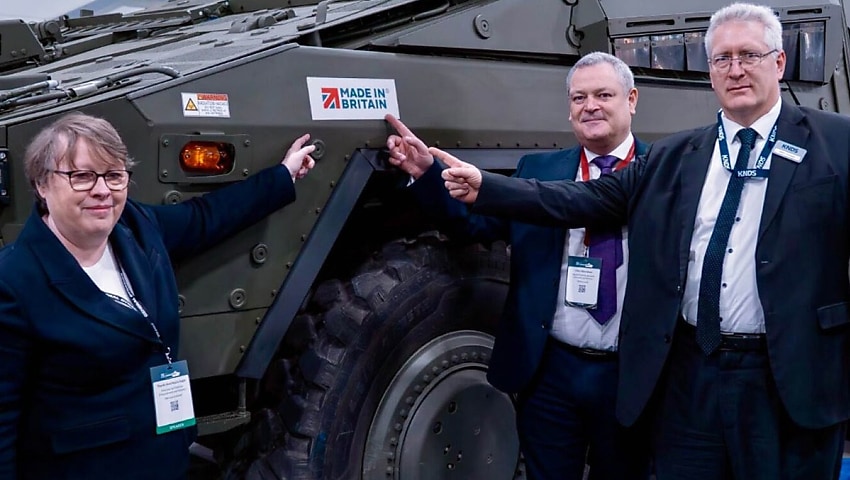British soldiers are set to receive 623 state-of-the-art Boxer armoured vehicles, marking a major milestone as the first fully British-made Boxer was unveiled today at the International Armoured Vehicles Conference in Farnborough.
The Boxer program delivers a significant boost to British industry, supporting around 400 jobs in Telford and Stockport and over 1,000 across the UK supply chain, aligning with the government’s growth mission.
Around 75 per cent of Boxer’s components are sourced domestically, ensuring a resilient UK supply chain and reinforcing the nation’s sovereign manufacturing capabilities.
The unveiling was led by Maria Eagle, UK Minister for Defence Procurement and Industry, who emphasised the government’s commitment to defence innovation and manufacturing. As part of the government’s Plan for Change, the Ministry of Defence is also developing a Defence Industrial Strategy to grow defence jobs across every region and nation of the UK.
Initially, some Boxer production began in Germany, however, manufacturing is now transferring to the UK, reflecting the government’s drive to enhance domestic production. Built under the Mechanised Infantry Vehicle (MIV) Program, the vehicles are being manufactured entirely in the UK by Rheinmetall BAE Systems Land (RBSL) in Telford, supported by partners at KNDS UK.
Minister Eagle said, “It was a pleasure to unveil the first fully British-made Boxer – a testament to the expertise and innovation of Britain’s growing defence industry.”
The £5 billion (AU$9.8 billion) investment in Boxer armoured vehicles complements the Army’s broader modernisation effort, including 148 Challenger 3 tanks, all expected to enter service by 2030.
Boxer vehicles are designed to support UK troops by enabling rapid movement of soldiers across the battlefield, enhancing their ability to perform specialised roles. Adaptable for various military missions and scenarios, these vehicles will serve the British Army in a wide range of operational theatres globally.
“The homegrown production of this world-class vehicle exemplifies our government’s Plan for Change, deepening our partnership with industry to deliver thousands of highly skilled jobs and drive growth across the UK,” Minister Eagle said.
John Abunassar, CEO of Rheinmetall in the UK, added, “The unveiling of the first British-made Boxer is a historic moment for UK defence manufacturing. It not only symbolises the return of armoured vehicle production to British soil but also underscores Rheinmetall’s commitment to delivering sovereign capability, innovation and economic prosperity for the UK.”
Production at RBSL in Telford showcases the transformation of the facility into a world-leading manufacturing hub, following a £56 million (AU$110 million) investment by Rheinmetall. This has established modern fabrication lines for armoured steel, advanced surface treatment systems and integrated assembly lines for drive and mission modules. Every Boxer produced reflects the skill and dedication of the highly trained workforce and supply chain partners.
“The unveiling of the first British-made Boxer is a historic moment for UK defence manufacturing. It not only symbolises the return of armoured vehicle production to British soil but also underscores Rheinmetall’s commitment to delivering sovereign capability, innovation and economic prosperity for the UK,” Abunassar said.
The collaboration between the British Army, Defence Equipment and Support (DE&S) and industry partners has been instrumental in delivering this groundbreaking vehicle. The Trinity House agreement, which fosters international cooperation to address 21st-century defence challenges, has also played a vital role.
This investment in the Boxer, along with the Ajax and Challenger 3 platforms, will create and sustain over 6,000 jobs across the UK. It further solidifies the nation’s position as a global leader in defence innovation and manufacturing, while delivering on the government’s vision for a stronger, more resilient British defence sector.
Boxer showcases the wide-sweeping benefits that come as a result of investment in the defence sector as well as the power of effective international cooperation. The UK variant benefits from the lessons learnt by partners in Germany, the Netherlands, Lithuania and Australia.


